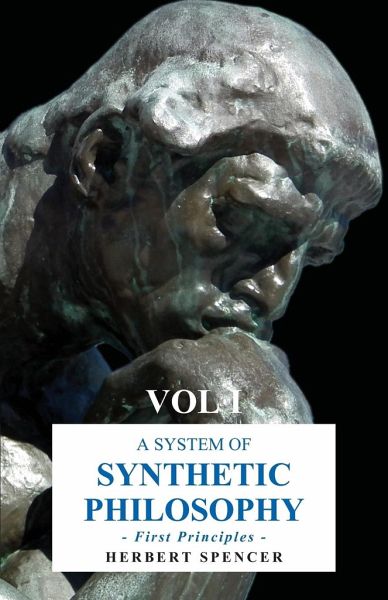
A System of Synthetic Philosophy - First Principles - Vol. I

PAYBACK Punkte
18 °P sammeln!
Originally published in 1910. Author: Herbert Spencer Language: English Keywords: Philosophy Many of the earliest books, particularly those dating back to the 1900s and before, are now extremely scarce and increasingly expensive. Obscure Press are republishing these classic works in affordable, high quality, modern editions, using the original text and artwork.
This vintage text contains a detailed treatise on synthetic philosophy, being an outlining of its first principles written by Herbert Spencer. Spencer's system endeavored to demonstrate that it was possible to believe in the perfection of humanity based on complex scientific ideas such as the first law of thermodynamics and biological evolution, rather than looking to religion. This fascinating text will appeal to those with an interest in seminal philosophical ideas, and will be of considerable utility to modern philosophy students. The chapters of this book include: 'Religion and Science', 'Ultimate Religious Ideas', 'Ultimate Scientific Ideas', 'The Relativity of All Knowledge', 'The Reconciliation', 'Philosophy Defined', 'The Data of Philosophy', 'The Indestructibility of Matter', 'The Continuity of Motion', etcetera. We are republishing this antiquarian book now in an affordable, modern edition complete with a specially commissioned new biography of the author.












